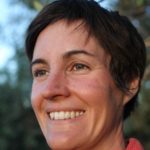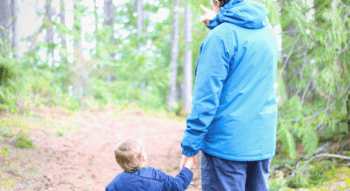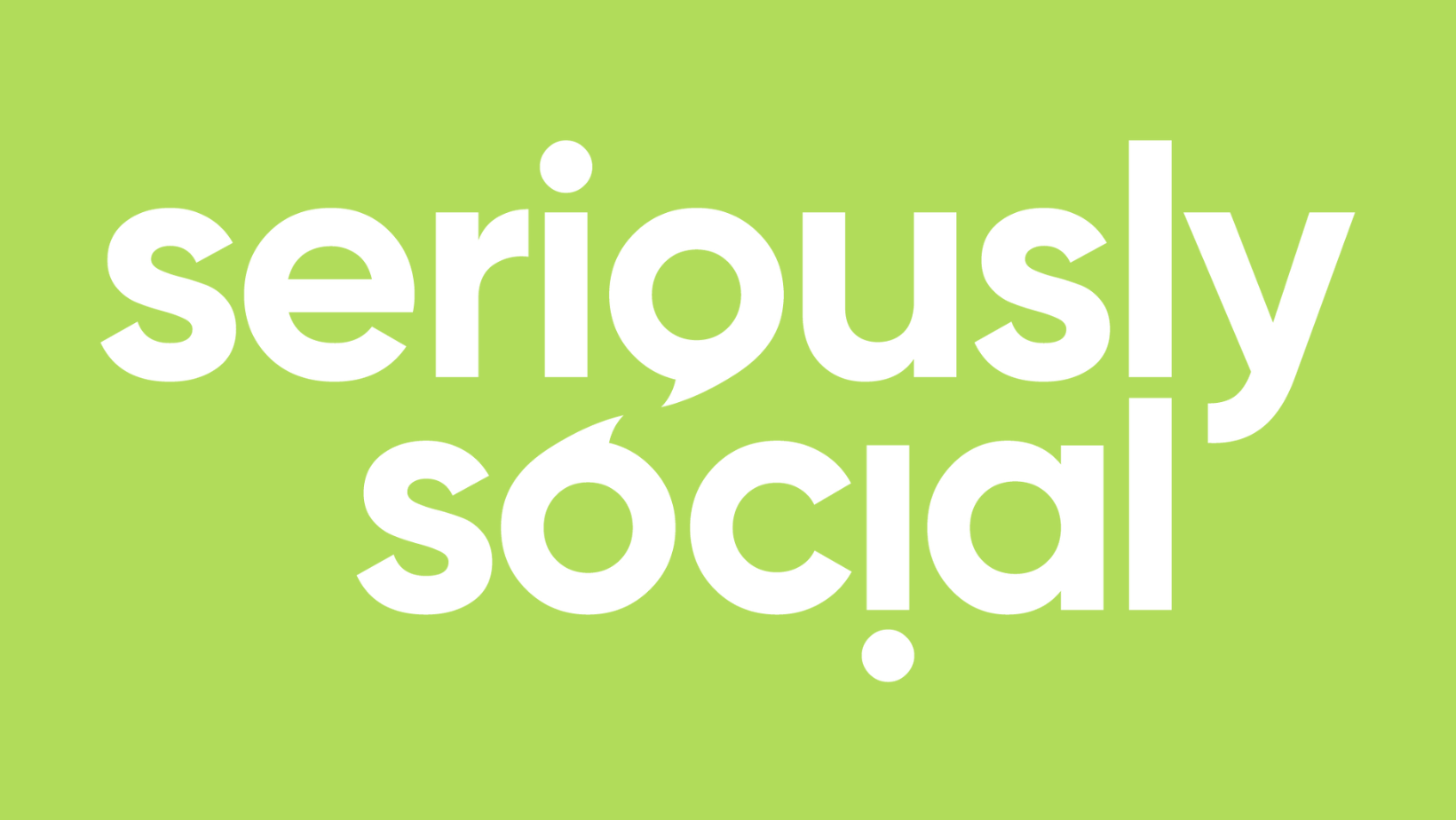Episode Notes
Episode Notes
Whatevs, just chillax – slang is here to stay. Slang expert Professor Kate Burridge explains how slang evolves and why it sticks around, and you’ll meet three linguists who are working hard to revitalise some of our ‘sleeping’ Indigenous languages.
Start of recorded material]
Female Voice 2: Why would someone be mad at you?
Female Voice 3: I don’t know, because it’s so formal because we just don’t.
Ginger Gorman: Are you as baffled as I am to learn that using full stops in a text makes teens think you’re angry with them? When did that become a thing?
That was my friends at the Academy of the Social Sciences in Australia chatting to one of their younger staff members about communication styles. But whether it’s written, like a text, or spoken, it turns out that language is really having a moment. Yes, folks, speech is breaking free and not everyone is happy about it.
Professor Kate Burridge: I’ve had people tell me that, you know, the word ‘haitch’ make them feel like they’re covered in fire ants, one speaker even said. You know, it makes their toes curl. It sounds like fingernails grating on a [01:00] blackboard. People describe their pet hates in all sorts of very visceral ways. Slang was originally underworld cant or underworld jargon.
Ginger: That’s Kate Burridge, a linguist at Monash University and a Fellow of the Academy of the Social Sciences in Australia. This is Seriously Social and I’m Ginger Gorman.
That word you love now, it might go in and out of fashion because new words are emerging all the time. And sometimes, there’s an obvious catalyst for it. Kate has previously written about the fact that in the past, hard times have often brought an influx of new language because actually, wordplay brings us a form of comfort.
Maybe that’s why the pandemic brought us so many new words. Remember ‘covidiots’ and ‘quarantinies’? And it wasn’t just the English language changing to accommodate COVID either. The Germans came out with hundreds of new words. One of my favourites was [02:00] ‘over-zoomed’, so when you’re stressed by too many video calls. I guess the Ozzy equivalent is probably ‘zoom fatigue’. Another one I heard bandied around a little bit is ‘corona angst’. And, of course, as Australians, we are no strangers to a little bit of wordplay.
Professor Kate: Australians love their slang. Some of them, many of them, even love the swearing. They have this great love of the larrikin, but we love our rules as well. And I find it quite interesting that Australians write letters of complaint to newspapers worrying about the state of the language and complaining about the state of the language more than British English speakers and more than American English speakers.
So, this sort of urge to clean up the language, this kind of verbal hygiene that we [03:00] started talking about is very much a part of Australia, despite of this love of the vernacular, this love affair we’ve had with the vernacular since the beginning.
Ginger: Kate told me that our use of colloquial language is actually speeding up the pace of change in Australian English.
Professor Kate: Change generally is speeding up now in the English-speaking world and there are a whole of factors to do with that. Basically, we’re coming, I suppose, off the back of 300 years of a rate of slowing down. So, rate of change is never constant because we’ve had dictionaries because we’ve had star guides and grammar books for standard language. And that has really slowed down the rate of change. In fact, it’s even reversed some major, particularly pronunciation changes that were happening.
But if you think of the lost ‘T’ in ‘often’, which many people now pronounce as ‘often’. That’s one example of hundreds of where people are restoring spelling pronunciations because of the clout of the written word. So, the ‘T’ would have dropped [04:00] long ago as it did in ‘glisten’ and ‘hasten’, but it’s now coming back because of the power of the written word.
Ginger: And then along came the Internet, and like a lot of things in our lives, language began to change very, very quickly.
Professor Kate: So, now, when you’ve lost the power of the written word, you’ve got electronic communication, you’ve got, yes, this great informality in the English-speaking world, you’ve got, yeah, colloquialization, a horrible lot of -isations. So, that is kind of loosening, I suppose if you could think of it as the straightjacket of writing or something. Speech is breaking free again, as it did in the Middle Ages and just doing its own thing.
But you’re quite right about Australian English. I mean, we’ve always had greater informality. A kind of colloquial idiom has been such a part of the lingo right from the beginning. And you can see early commentaries. When English first arrived in this country where it was clearly a marker of what they used to describe as an old chum versus a new chum. So, if you’re an old chum, you’ve been here for a while, you know, you speak the lingo [05:00]. And if you’re a new arrival, then you know quickly to speak the lingo, otherwise, you’re branded as a new arrival and not one of the gang.
Ginger: That’s really interesting, though, isn’t it, that it’s always been used as a marker; a marker of class, but also a marker of are you inside or outside this particular social circle? Do you understand this community? Are you us or are you them?
Professor Kate: Exactly. And if you think of the original purpose of slang, which was this underworld cant, underworld jargon, then that was very much, you know, it was a secret language. It was very much an insider language and the police were always trying to crack the code in early times. And it’s not a coincidence that the first dictionaries were in fact dictionaries of colloquialisms because of that reason, you know, dictionaries of cant.
Ginger: I have to admit that I love a little bit of Ozzy slang. ‘I’ll be there in one shake of a wet frog’,’ useless as tits on a bull’, [06:00] even though that one’s a bit rude. Kate has her own favourites though.
Professor Kate: I love the word ‘dag’ and always have. And I loved the journey it took from the backside of a Derbyshire sheep to the sort of current Australian dag. I’m never really quite sure what a dag is and perhaps, I think I’ve been trying to figure it out ever since a student described me as a dag. You know, I mean, what exactly did the student mean by that, but sort of I think unfashionable, I don’t know, uncool. I’m not sure. But it’s a lovely word. I know it’s not a sneer term in that respect, but it’s a gentle kind of word.
Ginger: It’s a loving, affectionate insult.
Professor Kate: Well, that’s what I thought too, yeah. We had a good relationship, I thought. But I also love, I don’t know, something like ‘rort’, which is also a part of Australian English. And it now, I think, has a rather dubious honour of appearing in the International Tax Glossary as a uniquely Australian word.
But you know, it was [07:00] around in early British English. It comes from ‘rorty’, which meant ‘jolly’, ‘lively’. So, a rorty party. And a rort then was a jolly party. So, that journey from jolly party to dodgy racket or scheme is a really interesting shift. And I think that’s why expressions and words and the journeys they take are just so fascinating because they do give us, don’t they, these lovely insights, lovely windows into attitudes and the society at the time.
Ginger: Speaking of attitudes and society at the time, one of the tragic outcomes of the colonisation and the displacement of First Nations people is the impact on language. But there is so much more to this story than many of us might realise.
Paul Williams: I’m Gomeroi from Tamworth. The language situation when I was in school was pretty abysmal. We didn’t learn any language at school. Our family didn’t grow up speaking the language [08:00], only sort of a few words here and there.
Ginger: Paul Williams is a linguist at the University of Queensland. He describes his journey to becoming a linguistics researcher as accidental. He did well in French at high school, so he kept studying it at university. And then he did linguistics as an elective and that’s where he started to learn more about indigenous languages.
And it’s a similar story for his colleague, also a linguist at the University of Queensland, [Lowana Tudor Smith 08:29]. Lowana was studying linguistics overseas when they suddenly realised that aboriginal languages were what interested them.
Lowana: Yeah, so I sort of came into the linguistics by accident as well. I went overseas to South America and started learning a bit of Spanish there. And then, when I came back, started studying linguistics with the intention to go on to be a TSOL teacher.
And then about six months into the degree, I realised that Aboriginal languages [09:00] were a big study area and I thought, “Wow, deadly. I can learn my own languages, study my own languages.” My background is that I grew up with my grandfather, who is a first language [inaudible 09:15] speaker, but he wasn’t allowed to speak our lingo after a certain age and had to speak English from then on. So, I didn’t grow up with much of that language. And my grandmother, we now know is [inaudible 09:33], but she was disconnected from that line as well, so we didn’t grow up with that language.
Ginger: A lot of Australians consider indigenous languages as ancient and as something that needed to be saved from extinction. But actually, like all languages, they evolve and change. And that evolution has happened and continues to happen for a myriad of reasons, like colonisation and slavery, but [10:00] also kids adapting words for their own purposes, much to the horror of their elders.
Paul: Even Indigenous people who don’t know a lot of traditional language. There are still words that we use differently in terms of like Aboriginal English.
Ginger: Like ‘deadly’, like Lowana was just saying.
Paul: Yeah, yeah. Words, like ‘shame’, for people who speak indigenous Aboriginal English, have a slightly different connotation. There are sort of words like that that also mark the in group, that dialect difference. And that still, even if you grow up without language, you still can sort of have feelings of connection to a culture through language by the way that you use English, a different way of using English.
Ginger: What does it mean in Aboriginal English?
Paul: Well, it sort of means like if you call someone ‘shamed’, they’re acting like [11:00] embarrassing, not like in standard English. It’s like it’s different, isn’t it? It’s sort of a bit – it’s close, but it’s different, right.
Ginger: Yes. It evolves in Indigenous English.
The word ‘dying’ is often used to describe the state of some Indigenous languages, but that’s wrong. Not even close. This is Felicity Meakins, who along with Paul and Lowana is a linguist at the University of Queensland. She’s also a Fellow of the Academy of the Social Sciences in Australia.
Professor Felicity Meakins: Words, like ‘dying’, ‘death’, ‘extinct’, moribund’, ‘dormant’, they’re all biological metaphors. And the idea, I guess, behind that metaphor is that they can’t come back. But languages aren’t DNA.
The way we often talk in Australia and across North America about languages that don’t currently have speakers, we like to think of them as sleeping languages and languages that are being awakened [12:00]. And there’s a lot of energy around that in Australia at the moment, which is very exciting.
We’ve seen some fantastic examples of languages being revived all over the world. So, Hebrew is a classic example. Mohawk in the United States and Maori just in New Zealand. So, in calling a language, saying that it’s dying, or it’s dead or it’s extinct, it’s saying that it can’t come back. And I think we’re absolutely seeing in Australia that that’s definitely not the case.
Female Voice 4: [12:50]
Ginger: That’s Gurindji woman, Rosie Smiler, telling a short story in Gurindji Kriol about another woman, Samantha, being jabbed by a catfish [13:00] spine. But even the language she is speaking has its own story of evolution.
Professor Felicity: Gurindji is a language that’s spoken in Victoria River District in the Northern Territory. It’s come into contact with Kriol and so, in the 1970s, older people were codeswitching between Gurindji and Kriol on the cattle stations. The Kriol was brought in through the cattle stations.
And that next generation, Rosie Smiler’s generation have transformed it into what linguists refer to as a mixed language. So, it’s its own language. It takes elements, like words, from both Gurindji and Kriol. It takes parts of grammar from both Gurindji and Kriol, but it mixes them together in entirely unique ways.
And so, you might have heard some words in there that you recognise, like ‘mud’, for instance, which ultimately comes from English through Kriol, but here will be an awful lot of things that you wouldn’t understand in that particular way of speaking. So, these languages really sit on that cusp between [14:00] tradition and modernity.
Ginger: Of course, with some of these sleeping languages, the full word list from the past may simply not exist anymore. But what that often means is that people then get creative.
Paul: Oh, yeah, definitely. I think in terms of language revitalisation, a lot of languages don’t have that full surviving word list. There is some sort of documentation and archives of words, but they might not exist in full, like the full 10,000 words that existed pre-colonisation, pre-invasion.
And so, I think the hope with these languages is that you can use this and be creative in that sort of way that these fellas that speak Gurindji Kriol are creative. And I do know people who learn new words and mix it in with their English and then there’s nothing wrong with that. That’s great. Use as much language as you [15:00] can.
Lowana: Every time I hear lingo spoken, I feel a connection to the ancestors and to the spirits. So, as much as we can use language, it’s great. And new languages are being born. And languages are alive and evolving constantly. It’s a known and it happens all around the world. So, this sort of stuff is inevitable where people are creative with language and languages change.
Ginger: To me, it’s very exciting and hopeful. Felicity, particularly with Gurindji Kriol, how have the elders that you’ve come into contact with accepted that language? How did they see it?
Professor Felicity: Yeah, I think perhaps it’s a bit of a universal the world over that old people don’t like the way that young people speak. And so, the old people feel the grief of lesser Gurindji being spoken. And so, they don’t necessarily look very positively on the language. But those views have changed [16:00] quite a lot over the years and certainly, the young people really hold up these languages. As they say, it’s a language for a new generation and there’s been an awful lot of change that’s gone on and that language really reflects that change.
Ginger: And this is in every language since the beginning of time. I can even think of examples from my own teenage years, which are no longer used today. I remember saying terrible words, like ‘grouse’, meaning ‘great’. I mean, you never hear that now, right, but it was everywhere when I was about 13. So, language does have an organic way of changing, but there’s a difference between that and a language being put to sleep, should we say, or sleeping.
Professor Felicity: Yes, absolutely. It depends on who’s got the agency and I think in Australia, the real issue is that the speakers have not had the agency with where those languages have ended up.
Ginger: Here’s Lowana again.
Lowana: Ideally, we would be practising the culture of the people [17:00] whose lands we’re on. If you go to France, it’s expected that you speak in French, use their currency, practise their social norms and conform to an extent to their way of life. So, it should be the same here, really, visiting here today on [inaudible 17:17] land. So, realistically, we should be practising their cultural laws and speaking in their languages.
Ginger: Felicity, I know that you have got funding to create dictionaries, so maybe we will see this into the future, but how hard is that going to be, considering what Paul and Lowana have said that some indigenous groups don’t have full word lists and they may never have them because those languages are sleeping and we don’t have access to that information.
Professor Felicity: At the moment in Australia, what we should be doing [18:00] is getting into a kind of triaging process. We need to know exactly where there are first-language speakers of languages and really be targeting language and support to those languages to document them. Communities are particularly interested in having dictionaries created.
And then, with other languages where there’s good archival material, there needs to be different kinds of support targeted in those communities so that people can access those archives and pull together the records that do exist and transform them in ways that can be used in school programs or programs outside of school within the communities.
Ginger: So, in good news, languages are being set free partly by technology and evolving faster than they have for hundreds of years. And in not so good news, there needs to be more work done to help those sleeping languages be revitalised.
So, where does this all [19:00] leave us? Maybe we should stop worrying so much about all those full stops, or the lack of them. And maybe we all need to make more of an effort to connect with a teen or a 20-something just to keep up with the rapid evolution.
Female Voice 5: If they want to put a full stop, I’d be like, “What did I do wrong? Why are you mad at me?” because it’s more formal, I guess.
Female Voice 6: So, no full stops in texts.
Female Voice 2: No full stops, no commas.
Female Voice 6: No commas.
Female Voice 5: I use a lot of exclamation marks.
Female Voice 2: And what about the use of the laughing emoji?
Female Voice 5: I don’t use emojis.
Female Voice 7: What’s wrong with emojis?
Female Voice 5: I just… No, I’m not friends with emojis either.
Ginger: Thanks for listening to Seriously Social. I’m Ginger Gorman.
If you’re enjoying the podcast, make sure you check out our website seriouslysocial.org.au for more content and articles and videos on the amazing work of Australia’s leaders in the social sciences.
Next time, did you know that when you are standing in front of your pantry trying to calculate if you need more cans of [20:00] tomatoes, you’re actually practising the art of forecasting. Next episode, we’ll look at how these predictions shape and impact our everyday lives. See you next time.
[End of recorded material 20:12]
Useful links
- Victorian Aboriginal Corporation for Languages is the peak body for Aboriginal Languages revitalization in the state of Victoria, leaders in the field of Language Revitalization, Resources Development, Research, and the archival, development, Aboriginal Language Library and Aboriginal languages digital information.






